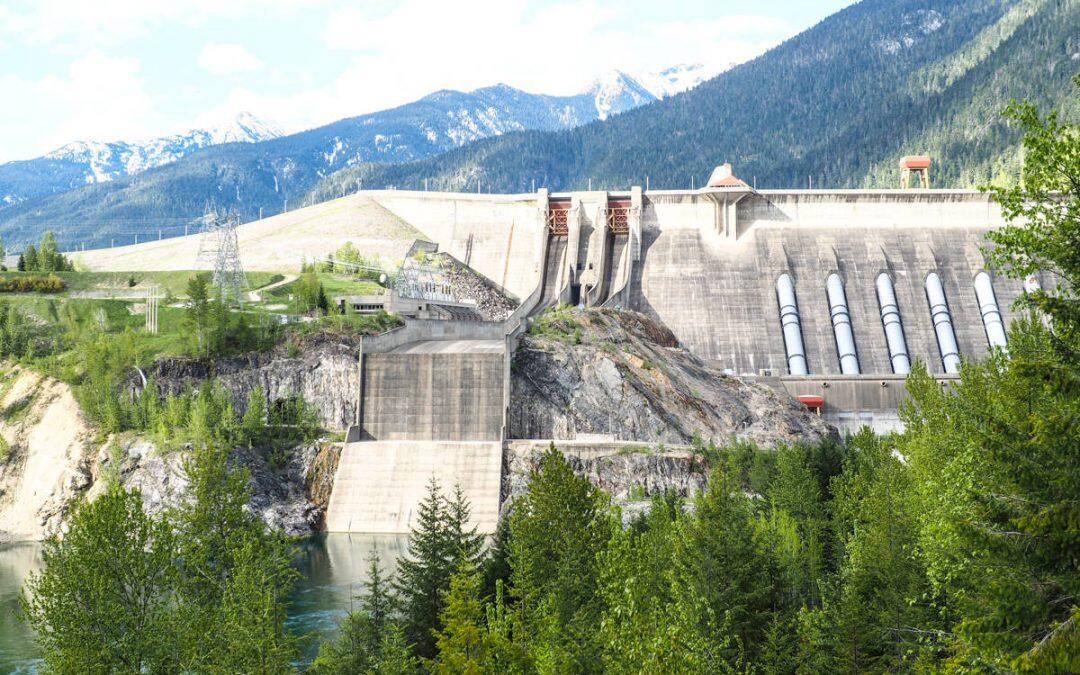A request by BC Hydro to suspend the application review time limit on the environmental assessment of the Revelstoke Generating Station 6 Project has been approved by the Environmental Assessment Office.
The suspension was approved to allow BC Hydro to further discuss mitigation measures with Indigenous groups.
“After considering your request and reasons, I have decided to grant your request to suspend the review time limit for Revelstoke 6 effective today, October 30, 2017, on day 112 of the 180-day review period,” wrote Scott Bailey, assistant deputy minister.
The Prescribed Time Limit Regulations allows a time limit of 180 days for review of an application under the Environmental Assessment Act.
“Working closely with Indigenous groups to build better, more transparent and collaborative relationships is important to us,” said BC Hydro spokesperson Jen Walker-Larsen. “The short-term suspension will provide additional time that will help all parties develop a shared understanding of the Indigenous groups’ interests.”
The EAO is requiring that they receive “a table of the mitigation measures proposed by BC Hydro to address potential impacts to Aboriginal rights and title and Revelstoke 6; and a summary of the consultation between BC Hydro and Indigenous groups during the suspension period with respect to the mitigation measures that explains how the views of each Indigenous group have been considered.”
The Revelstoke Generating Station, located five kilometres upstream from the Revelstoke townsite on the Columbia River, was completed in 1984 and was initially designed to hold six generating units. Only four units were installed when it was first built. A fifth unit was added and began service in 2010.
According to a BC Hydro factsheet, the Revelstoke Generating Station currently produces, on average, approximately 7,817 gigawatt hours, which is about 15 per cent of the electricity that BC Hydro produces annually.
The sixth unit would add approximately 500 megawatts of capacity to BC Hydro’s system.
BC Hydro is predicting demand will increase 40 per cent over the next 20 years. It expects the Revelstoke Unit 6 will be needed in 2026 to cover a deficit that will take place when maintenance work on four units at Mica Dam begins, keeping them offline for between 12 and 18 months.
BC Hydro says it is pursuing regulatory approvals so the Revelstoke Unit 6 could be in service in 2021.
As part of the Environmental Assessment Office’s process, the City of Revelstoke submitted a list of concerns about the project in August this year.
Among them were concerns about housing for construction workers, extra policing and riverbank erosion.
BC Hydro believes that construction for the project would take just over three years. It says that the work involved for the sixth unit would be similar to the fifth.
Among the expected changes to operations are higher Columbia River flows downstream of the dam during peak generation times.
Currently, BC Hydro says the dam is used as a “daily peaking plant, where the available water is used to maximize generation when load demand is high.”
During light load hours, the minimum flow is 5,000 cubic feet per second.
The sixth unit would allow BC Hydro to use the water differently, releasing up to 20 per cent more water with all six units operating for short periods of time during high-demand times.
The current water licence for Revelstoke Dam allows for a diversion limit of 90,000 cfs.
With advances in technology, the dam has the potential for increased output. BC Hydro is applying for an additional water licence of 3,000 cfs. If the licence is granted, the maximum facility discharge with all six units would be 93,000 cfs.
Revelstoke Reservoir would be minimally affected by the sixth turbine, says BC Hydro.
“Operation of the sixth generating unit would be expected to only cause small changes to the timing and amount of water level fluctuation within the current 1.5 metre operating range under normal conditions,” says BC Hydro. “BC Hydro would continue to occasionally operate Revelstoke reservoir at a lower minimum level during cold weather or unusual system conditions.
“All reservoir elevations and facility discharges elsewhere in the Columbia River system would be expected to stay within their current normal operating ranges.”
BC Hydro is also planning to build a new capacitor station west of the Summerland area.
Source: http://bit.ly/2i6gki5











